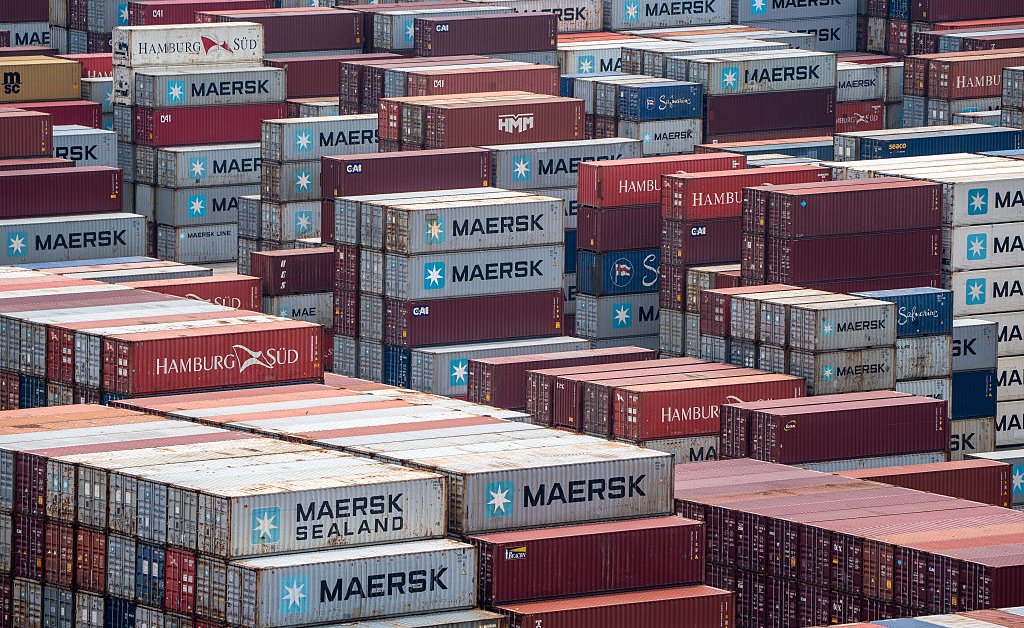Trade Wars, Climate Wins: Unexpected Opportunities – A New Economic Landscape
Editor’s Note: The shifting global landscape presents both challenges and surprising opportunities. This article explores the unexpected economic benefits arising from trade tensions and climate action.
Why This Topic Matters:
The world is experiencing a period of unprecedented change. Trade wars have reshaped supply chains, while the growing urgency of climate change is driving significant investment in renewable energy and sustainable practices. Understanding how these seemingly disparate forces interact is crucial for businesses, investors, and policymakers navigating this new economic terrain. This article will delve into the unexpected opportunities emerging from these global shifts, focusing on reshoring, green technology advancements, and the rise of sustainable investments.
Key Takeaways:
| Benefit | Explanation | Impact |
|---|---|---|
| Reshoring & Nearshoring | Shifting production closer to home reduces reliance on distant, volatile markets. | Increased domestic job creation, improved supply chain resilience. |
| Green Technology Boom | Climate action fuels innovation and investment in renewable energy and green tech. | Creates new industries, jobs, and economic growth. |
| Sustainable Investments | ESG (Environmental, Social, and Governance) investing gains traction. | Drives capital towards sustainable businesses and projects. |
| Diversified Supply Chains | Trade conflicts incentivize businesses to diversify their sources of materials and goods. | Reduced vulnerability to geopolitical instability and supply chain shocks. |
1. Trade Wars: A Catalyst for Change
Introduction: The era of globalization, once characterized by frictionless trade, has encountered significant headwinds. Trade disputes and geopolitical tensions have created uncertainty, forcing businesses to reassess their global supply chains.
Key Aspects: Increased tariffs and trade barriers have disrupted established trade routes, leading to higher costs for consumers and businesses. However, this disruption has also spurred innovation and adaptation.
Detailed Analysis: Many companies are choosing to "reshoring" or "nearshoring" – relocating production facilities closer to their home markets. This strategy mitigates risks associated with long supply chains, reduces transportation costs, and potentially creates domestic jobs. While the initial transition may be costly, the long-term benefits of greater resilience and reduced reliance on volatile global markets are compelling.
2. Interactive Elements on Trade Wars and Climate Action
Introduction: The interplay between trade policy and climate action isn't always straightforward. However, several interactive elements are shaping the landscape.
Facets: Carbon tariffs, designed to incentivize countries to reduce their carbon emissions, are emerging as a significant factor. These tariffs can impact international trade flows, potentially creating both winners and losers. Similarly, government subsidies for renewable energy and green technologies are altering the competitive dynamics of various industries.
Summary: These interactive elements highlight the complex relationship between trade and climate change. Navigating this complexity requires a nuanced understanding of the policy landscape and its impact on different industries.
3. Advanced Insights on Unexpected Opportunities
Introduction: Beyond the immediate impacts of trade wars and climate policies, deeper insights reveal broader economic transformations.
Further Analysis: The shift towards sustainable practices is not just an environmental imperative but also a significant economic opportunity. The growth of the green technology sector is creating jobs and attracting substantial investments. Furthermore, the increasing demand for ethically sourced and sustainably produced goods presents opportunities for businesses that prioritize environmental and social responsibility. ESG investing is becoming increasingly mainstream, further driving capital towards sustainable projects.
Closing: The convergence of trade disruptions and climate action is creating a dynamic and unpredictable economic environment. However, for businesses willing to adapt and innovate, this period offers unprecedented opportunities for growth and long-term sustainability.
People Also Ask (NLP-Friendly Answers):
Q1: What is a trade war? A: A trade war is a situation where countries impose tariffs or other trade restrictions on each other's goods and services, often leading to retaliatory measures and harming global trade.
Q2: Why is climate action important for the economy? A: Climate action creates new economic opportunities in renewable energy, green technology, and sustainable industries, leading to job creation and economic growth.
Q3: How can businesses benefit from reshoring? A: Reshoring improves supply chain resilience, reduces transportation costs, and potentially creates domestic jobs.
Q4: What are the challenges of implementing carbon tariffs? A: Carbon tariffs can face political opposition, potential trade disputes, and difficulties in accurately measuring and verifying carbon emissions.
Q5: How to get started with sustainable business practices? A: Start by assessing your current environmental impact, setting clear sustainability goals, investing in green technologies, and engaging your employees and stakeholders in your sustainability initiatives.
Practical Tips for Navigating the New Economic Landscape:
Introduction: Adapting to the changing economic environment requires strategic planning and foresight.
Tips:
- Diversify your supply chains to mitigate risks.
- Invest in green technologies and sustainable practices.
- Explore reshoring or nearshoring options.
- Embrace ESG principles in your investment strategies.
- Stay informed about evolving trade policies and regulations.
- Build strong relationships with suppliers and partners.
- Foster innovation and adaptability within your organization.
- Engage with stakeholders on sustainability initiatives.
Summary: Proactive adaptation to the changing economic landscape is crucial for long-term success. By embracing innovation and sustainable practices, businesses can not only mitigate risks but also unlock new opportunities for growth.
Transition: The future of the global economy is being shaped by interconnected forces. Understanding these forces and adapting accordingly is key to thriving in this dynamic environment.
Summary: The convergence of trade wars and climate action presents challenges, but also unexpected opportunities for economic growth and transformation. By embracing innovation, sustainable practices, and strategic adaptation, businesses can navigate this complex landscape and unlock significant long-term benefits.
Call to Action: Ready to explore the opportunities in this new economic landscape? Subscribe to our newsletter for more insights on sustainable business practices and global trade.

